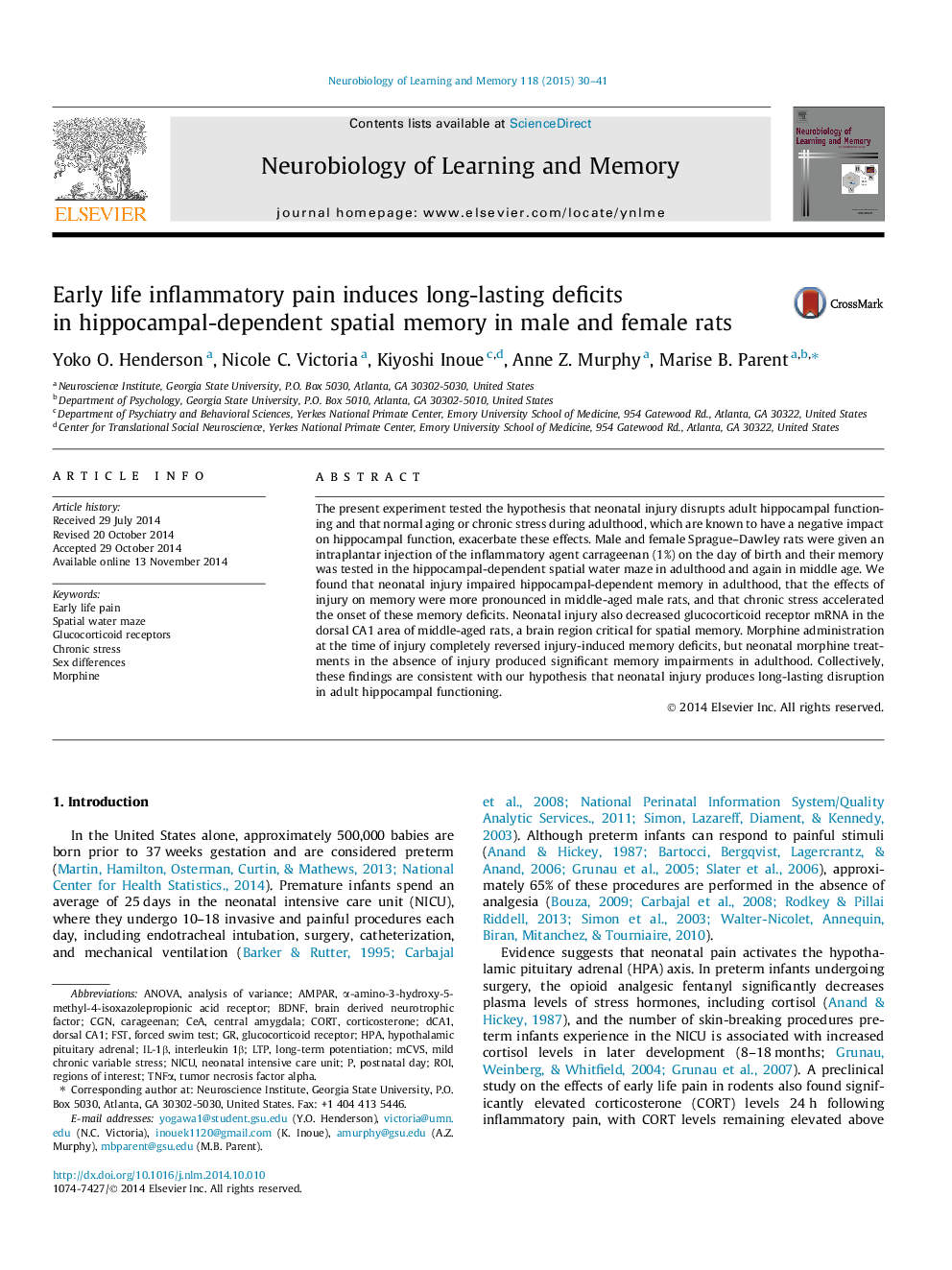| Article ID | Journal | Published Year | Pages | File Type |
|---|---|---|---|---|
| 7299603 | Neurobiology of Learning and Memory | 2015 | 12 Pages |
Abstract
The present experiment tested the hypothesis that neonatal injury disrupts adult hippocampal functioning and that normal aging or chronic stress during adulthood, which are known to have a negative impact on hippocampal function, exacerbate these effects. Male and female Sprague-Dawley rats were given an intraplantar injection of the inflammatory agent carrageenan (1%) on the day of birth and their memory was tested in the hippocampal-dependent spatial water maze in adulthood and again in middle age. We found that neonatal injury impaired hippocampal-dependent memory in adulthood, that the effects of injury on memory were more pronounced in middle-aged male rats, and that chronic stress accelerated the onset of these memory deficits. Neonatal injury also decreased glucocorticoid receptor mRNA in the dorsal CA1 area of middle-aged rats, a brain region critical for spatial memory. Morphine administration at the time of injury completely reversed injury-induced memory deficits, but neonatal morphine treatments in the absence of injury produced significant memory impairments in adulthood. Collectively, these findings are consistent with our hypothesis that neonatal injury produces long-lasting disruption in adult hippocampal functioning.
Keywords
CarageenanTNFαCGNROIFSTIL-1βAMPARBDNFCeAα-amino-3-hydroxy-5-methyl-4-isoxazolepropionic acid receptorforced swim testCentral amygdalaChronic stressinterleukin 1βNICUanalysis of varianceANOVASex differenceslong-term potentiationLTPtumor necrosis factor alphapostnatal daybrain derived neurotrophic factorHypothalamic pituitary adrenalRegions Of InterestmorphineHPAneonatal intensive care unitCORTCorticosteroneglucocorticoid receptorsglucocorticoid receptor
Related Topics
Life Sciences
Neuroscience
Behavioral Neuroscience
Authors
Yoko O. Henderson, Nicole C. Victoria, Kiyoshi Inoue, Anne Z. Murphy, Marise B. Parent,
